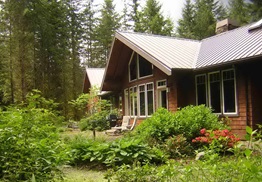Research and Information Needs to Improve Healthcare Access in Disasters
- John Cornelison
- February 10, 2022
Table of Contents
 We are writing to invite you to share your input and expertise in a virtual forum hosted by the Cascadia Coastlines and People Research Coordination Network (Cascadia CoPe RCN) on “Research and Information Needs to Improve Healthcare Access in Disasters.” This event is part of a broader effort to advance research on coastal hazards and resilience that will be useful to coastal communities in the Pacific Northwest, coordinated by the Cascadia Coastlines and Peoples Hub (Cascadia CoPes Hub). You can learn more about our work here.
We are writing to invite you to share your input and expertise in a virtual forum hosted by the Cascadia Coastlines and People Research Coordination Network (Cascadia CoPe RCN) on “Research and Information Needs to Improve Healthcare Access in Disasters.” This event is part of a broader effort to advance research on coastal hazards and resilience that will be useful to coastal communities in the Pacific Northwest, coordinated by the Cascadia Coastlines and Peoples Hub (Cascadia CoPes Hub). You can learn more about our work here.
The forum will be held by Zoom on March 2, 2022 from 9am - 11am PST. Please register by our priority registration deadline of February 23, 2022 [here] to receive the Zoom link.
Coastal communities are among those most at risk of disruptions to healthcare access in the event of an earthquake or other natural hazard. In response, our virtual forum will bring together practitioners and scientists interested in collaboration to improve healthcare access following major disasters resulting from natural hazards in coastal communities to:
1. Identify information needed to better understand healthcare access impacts and prevent disruptions within Cascadia coastal communities following disasters resulting from natural hazards;
2. To develop a collaborative research agenda, based on community priorities, to inform and improve healthcare access following major disasters resulting from natural hazards in coastal communities.
The virtual forum will be space for Pacific Northwest coastal emergency managers, public health officials, healthcare coalitions, hospital emergency managers, healthcare service providers/administrators, transportation planners, local elected officials, public safety (police/fire/EMS), and community planners to share their insights and expertise.
Please share this invitation with your colleagues with relevant responsibilities or expertise, particularly those from small and medium sized healthcare organizations serving PNW coastal communities (e.g., skilled nursing facilities, opioid treatment programs, federally qualified health centers, etc.). Please note that we are planning to host a separate forum at a later date specifically for tribal representatives.
We understand that your time is limited. To thank you for your sharing your time and expertise with us during the forum, we are offering an honorarium. Please contact Jessica Nagtalon (nagtalon@uw.edu) for more information about the honorarium.
Please let us know if you have any questions or concerns. We look forward to working with you.
Sincerely,
Nicole Errett, Forum organizing committee chair
with support from:
David Schmidt, PI Cascadia CoPe RCN
Peter Ruggiero, PI Cascadia CoPes Hub
Ann Bostrom, Co-PI Cascadia CoPes Hub and Cascadia CoPe RCN
 Even in temperate western Washington it can take only a few sunny days for forests to dry out enough to catch fire. And, in windy conditions wildfires can get out of control quickly. Wildfires burn every year in east King County. Before wildfire strikes, homeowners can help protect lives and property by creating a fire-adapted space around structures.
Even in temperate western Washington it can take only a few sunny days for forests to dry out enough to catch fire. And, in windy conditions wildfires can get out of control quickly. Wildfires burn every year in east King County. Before wildfire strikes, homeowners can help protect lives and property by creating a fire-adapted space around structures. The Partners in Emergency Preparedness Conference is an annual meeting held in Tacoma that is an excellent way to network with others in the disaster preparedness field – and get an excellent overview of the state of the art. Though a good deal, it doesn’t always fit folks schedules and may be too big a time and financial commitment for others. Fortunately, they make many of the presentations available after the conference. Here they are:
The Partners in Emergency Preparedness Conference is an annual meeting held in Tacoma that is an excellent way to network with others in the disaster preparedness field – and get an excellent overview of the state of the art. Though a good deal, it doesn’t always fit folks schedules and may be too big a time and financial commitment for others. Fortunately, they make many of the presentations available after the conference. Here they are: